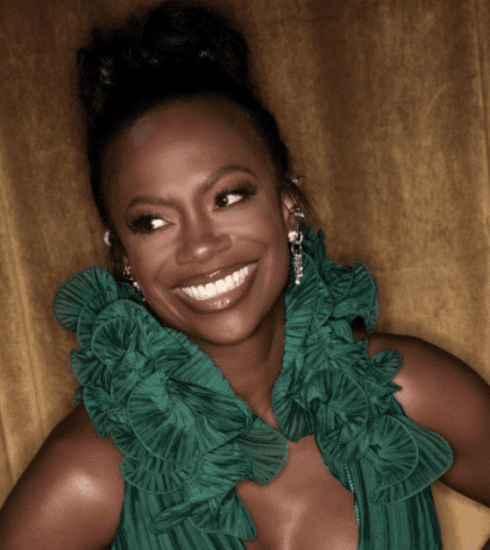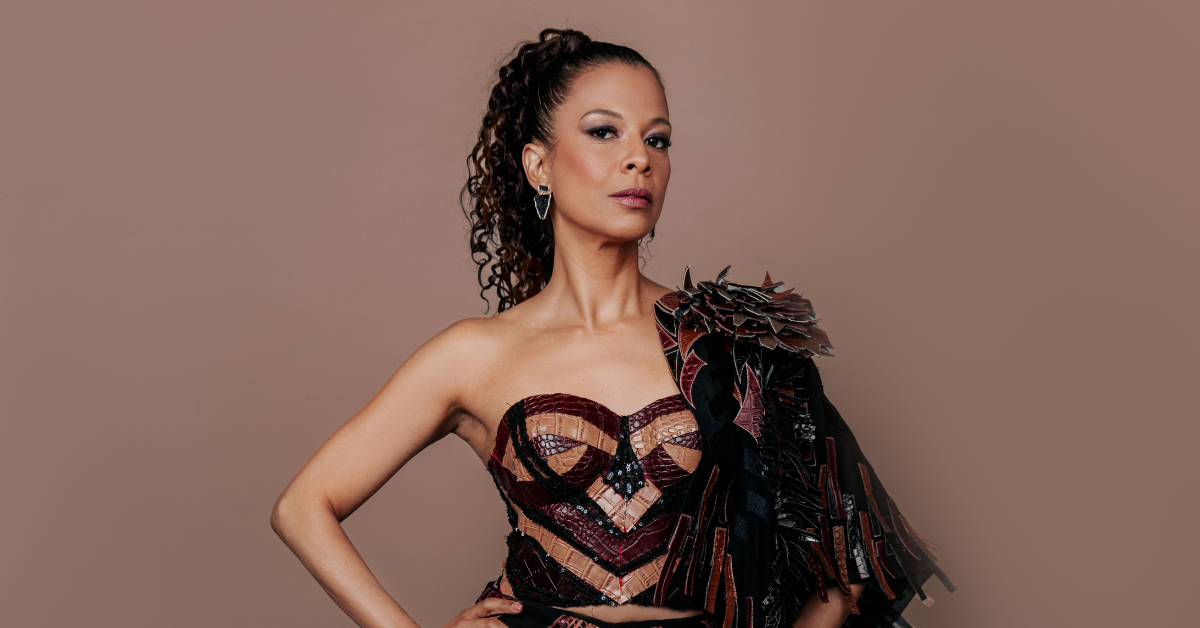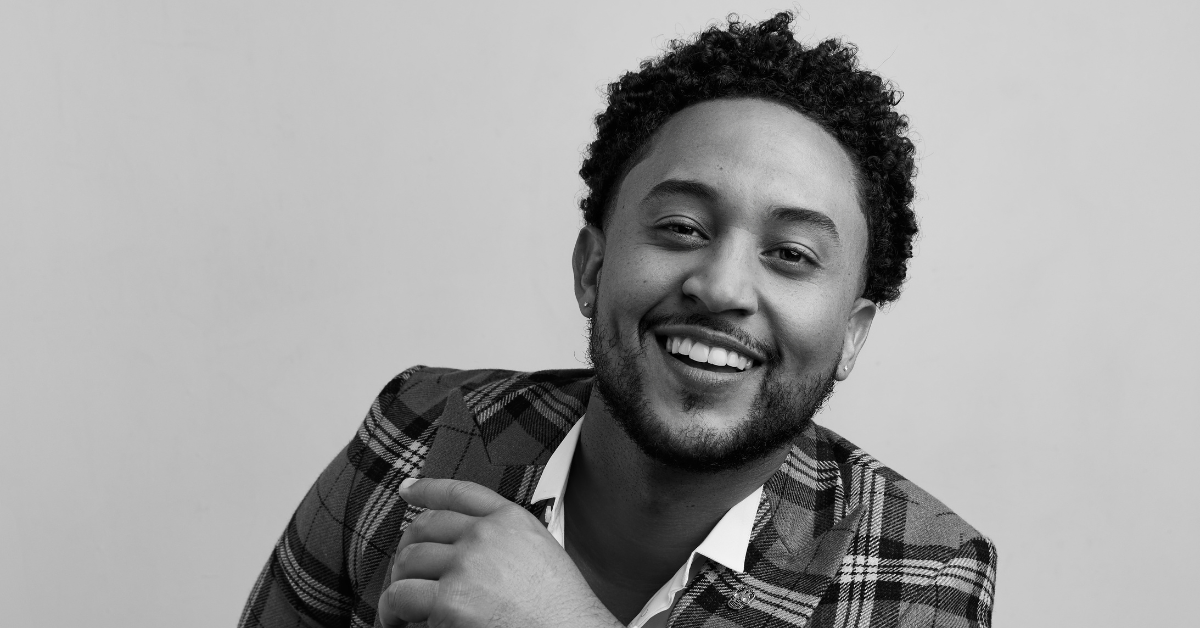Tyler Lepley speaks on the importance of Black men embracing vulnerability and why representation in media matters with his roles in Harlem and P-Valley.
Tyler Lepley is bringing in the new era of the modern-day renaissance man. As an actor and rapper, he uses his platform and voice to speak on the importance of communication and vulnerability and how important they are for human connections, especially the Black man. He is candid about developing practical communication skills and embracing his vulnerable side. Lepley illustrates how his current roles, ‘Ian’ in Harlem and ‘Diamond’ in P-Valley, showcase a necessary new perspective of Black men on television.
Cox: Tyler, I’m excited to speak with you today. Before we get into your current starring roles in Harlem and P-Valley, I want to discuss your perspective on masculinity.
Lepley: Yes, I have this new take on what masculinity is and how it’s defined. Protecting and providing come to mind when we think of masculinity, and that’s true, but there needs to be a balance. This balance comes from bringing in that vulnerability to go along with that masculinity and strength. It creates the fullness of what a man really is. And I’m blessed that, with the recent roles you mentioned, I can explore that through writing.

Cox: Speaking of exploring. In a recent interview, you spoke about being unable to express yourself as a child and how that negatively affected how you reacted.
Lepley: Back in the day, when I had issues growing up, I fought fire with fire instead of vocalizing what was happening, which led me to fight a lot. But as I got older, I developed my effective communication skill set. It helped me articulate my feelings and what was going on internally.
Vocalizing what was happening to me helped me and those I had issues with realize that we were dealing with similar things in life. We all wouldn’t have discovered these similarities during our conflicts if I hadn’t spoken up.
Cox: Effective communication is vital in any relationship. How has this new outlook affected how you are as a partner?
Lepley: Honestly, it’s made it much easier for me to communicate with everyone. It has also helped people understand me better. For my relationship, it allows me to set the stage and tone when we butt heads. Instead of just lashing out, I communicate how we can reconcile when things go wrong and something happens. Of course, you will butt heads in any relationship at some point. But sharing makes it easier for us to understand each other, regardless of who did wrong initially.
Cox: As a father, partner, actor, and rapper, how do you balance it all?
Lepley: I always return to this analogy of the man in the arena. As humans, we’ll have problems and have to juggle various responsibilities. I’d rather be the man in the arena juggling these responsibilities than the man in the peanut gallery. Don’t get me wrong, Mike; I’ve been that guy too. But I’m now at this place where I’m doing all the things I am passionate about and love.
I have three beautiful children, whom I love from the bottom of my heart, and a woman I’m deeply in love with. I wouldn’t change it for the world. So, I look at how blessed I am with everything going on and welcome it all.
And to answer your question about how I balance it all. We have 24 hours a day, and it’s all about focusing. I focus on the blessings of being in this position in life.
Cox: Tyler, we can tell you love deeply when it comes to love. When we go to your Instagram, we can see your passion for your partner.
Lepley: Man, I’m just blessed enough to be in a relationship that is everything I have ever wanted. It’s easy to love as loudly as I do and accept everything that comes with it. It’s been easy for me to love her like this because this is how she makes me feel.
Cox: Now, let’s get to your current projects. I want to talk first about ‘Ian’ in Harlem. There are so many layers to him and his evolution on that show. He represents that strength in Black men being vulnerable.
Lepley: Yes, Ian truly understands and communicates the power of being in touch with his wants and desires. When first introduced to him, we learn how he left and returned to Harlem after studying under world-renowned chefs. He did this to bring that knowledge and experience back to Harlem.
This season, we see him communicating how he wants kids, his feelings about it, and how he wants to plan for the future. I commend Ian for choosing what he truly wants out of life at the end of season two and not just settling. You see him stay grounded as a man who can still articulate and handle himself even if the situation isn’t going the way he likes.

Cox: There is this versatility with your characters, both ‘Ian’ and ‘Diamond’ in P-Valley, that men can relate to and women can truly appreciate in their approach.
Lepley: There will be men and women who will look at these characters and not understand the vulnerability they are representing or presenting. They have never seen it in real life, and that will show. This is why work like this is essential: it opens up the audience to the fullness of humanity.
Some people will think these guys show too much emotion and won’t understand why. Watching my characters might help them understand how a man considered the ideal ‘cool guy’ can be masculine in his presentation, take care of his business, and still know how to articulate himself and how he feels.
Cox: Speaking of ‘Ian’ and ‘Diamond,’ which character gives you the best opportunity to express and showcase your vulnerability?
Lepley: You know what, Mike? They both do it in different ways. There is a hell of a juxtaposition when it comes to ‘Diamond.’ In the first episode, he kills someone’s baby daddy and rocks the baby to sleep in the same scene. There is a deep sense of vulnerability when it comes to ‘Diamond’ because he’s a big teddy bear and a killer simultaneously.
Then with ‘Ian,’ you get this Black man who isn’t afraid of dreaming out loud. He’s showing us that it’s okay to be open about the process of life where you’re trying to figure it all out. ‘Ian’ is working to become the best version of himself.
Cox: Continuing this discussion on vulnerability. I loved that you made a recent post on Instagram where you opened up about experiencing roadblocks recently. How do you deal with them?
Lepley: It goes back to the man in the arena. No one said this would be easy, but it would be worth it. I always return to something I read a while back that said, ‘the ship is safest at the shore, but that’s not what a ship is built for.’ Think about when you’re sailing; you will see the ocean’s depth, feel how cold it is out there, and sometimes experience the choppy waters. But this is what you asked for, and you agreed to go.
So, I accept the roadblocks that come my way because I’d rather try to fall on my face than live with regrets.

Cox: You have a new single out. Some might not know you are also a rapper.
Lepley: Yes, I just dropped my new project, ‘Just Because,’ and it’s available on all platforms. I’ve been making music as long as I’ve been acting, maybe even a little longer.
Cox: Before we go, I want to know what it is about acting that keeps Tyler going. What do you love the most about it?
Lepley: This process of expressing myself through a character is something I love. It allows me to let many things out rather than hold them. Out of all the things I’ve done, even football, acting is the one thing that lets me express myself through the multitude of different writers.
Another thing I love about it is that I never get bored. I have learned so many new things with each role and formed so many new habits that I always keep my craft strong. I get to shape-shift with each character and show. I appreciate this because when I have roles in shows like Harlem and P-Valley, I never fear that I will get typecast.






